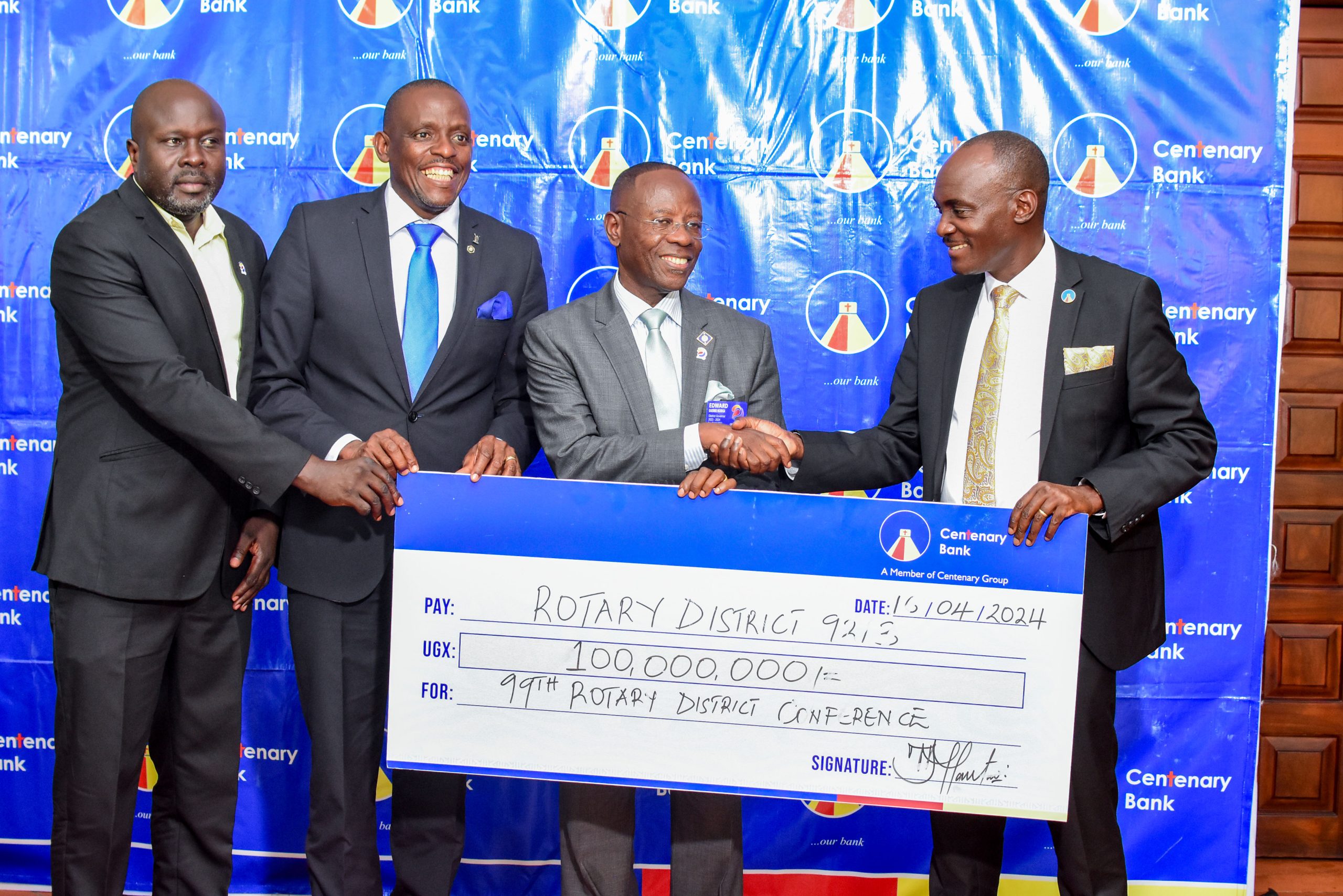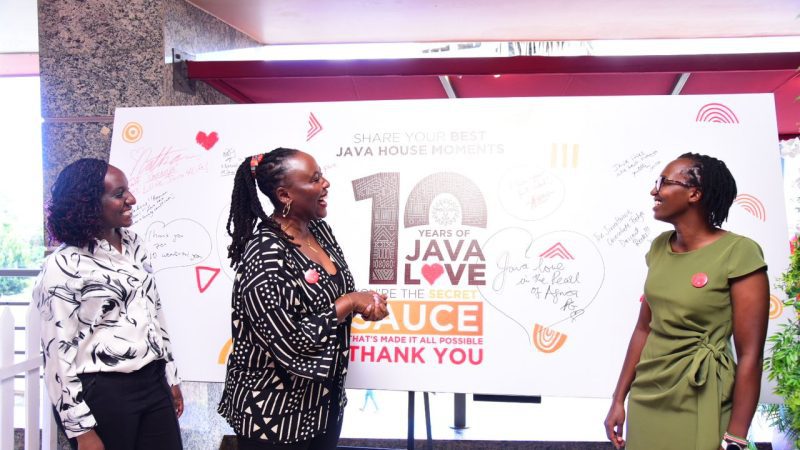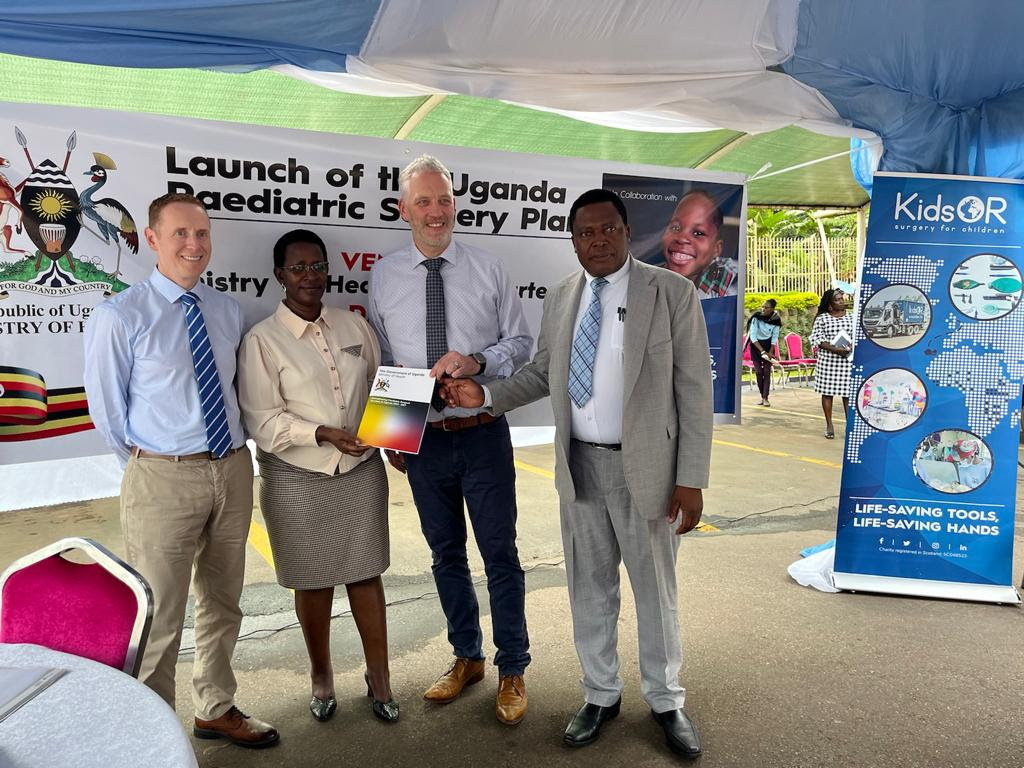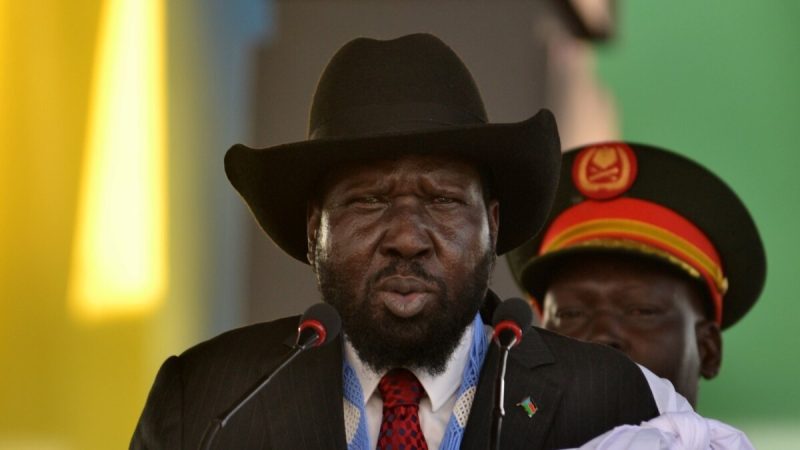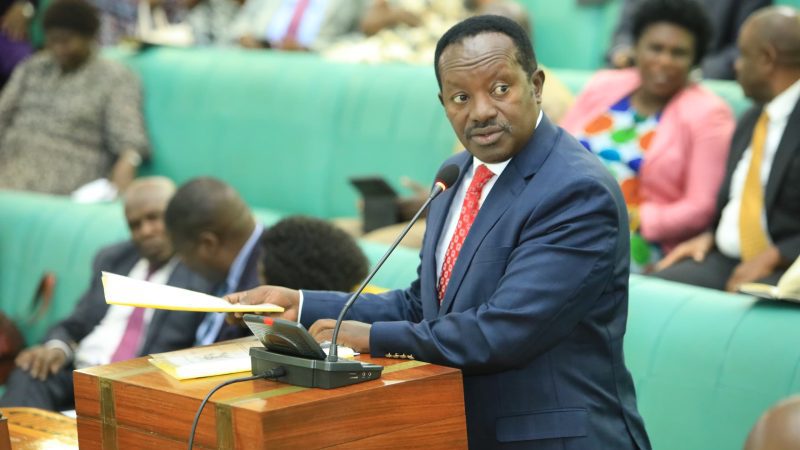The Ministry of Health in collaboration with Kids Operating Room, a global health charity, has today unveiled the first ever Children Surgery National Plan, a five-year strategy that aims to scale up paediatric surgical services to regional referral and general hospitals as well as training of paediatric surgical workforce.
Uganda currently has eight paediatric surgeons in the whole country all who work at Mulago National Hospital and Mbarara Referral Hospital. Further, most of the Regional Referral Hospitals do not have enough workforce or adequate infrastructure to conduct surgery for children effectively.
While officiating the ceremony, Health Permanent Secretary Dr Diana Atwine acknowledged the shortage of both human resources and equipment stating, “against this background, the Ministry of Health has put significant focus on expanding access to services for paediatric surgery and developing tertiary units to manage complicated cases.
“This includes the establishment of the Entebbe Children’s Hospital, renovation and equipment of operating theatres across referral and district hospitals, establishment of the ICUs across all regional referral hospitals, training of more general surgeons and support staff among other initiatives.”
Echoing her statement, Head of Director of clinical services Dr Charles Olaro, noted that it’s possible to build comprehensive surgical services for every child in Uganda and this strategy outlines how.
“The plan is to have a well-established network of hospitals across the country as well as adequate local expertise.
“From the taskforce convened, recommendation is to develop a Super Hub (Mulago National Referral Hospital,) Hubs and Spoke model whereby at least 21 paediatric surgeons and their associated teams will be trained and employed by the end of 2027.”
The Super Hub- Hubs- Spoke model will ensure that there is sharing of resources, continuous mentorship and better communication through referral networks with lower healthcare level facilities.
In this model, a Super Hub is equipped with better resources to provide specialists and superspecialists care. A Hub has all the required resources to provide general paediatric surgery while receiving support from the Super Hub with the option to refer patients needing more advanced to the Super Hub hospital. Hub hospitals will in-turn support the Spoke hospitals – those district/general hospitals who do not have qualified paediatric surgical teams but who do provide surgical care for children.
Also at the occasion, chairperson and co-founder of Kids Operating Room, Garreth Wood, acknowledged the role and impact this plan is envisioned to bring: “We are privileged to be part of this first ever paediatric surgery roadmap in Uganda. This will help more children get the right care, at the right time and in the right place, something we should all be extremely proud of. If fully implemented, it will save thousands of lives in the years to come.”
As outlined in the strategy, with the existing population of 21 million children in need of surgical care, it could be argued that Uganda needs 210 paediatric surgeons with their associated anaesthetists and wider teams. This is informed by international standards that recommend 1 paediatric surgeon per 100,000 children. If successful, this model ought to prevent inappropriate referrals and keep as much care close to home as is safely possible.
To note, is that this strategy will complement other ongoing efforts to specifically include the needs of children in the wider health agenda in Uganda.


